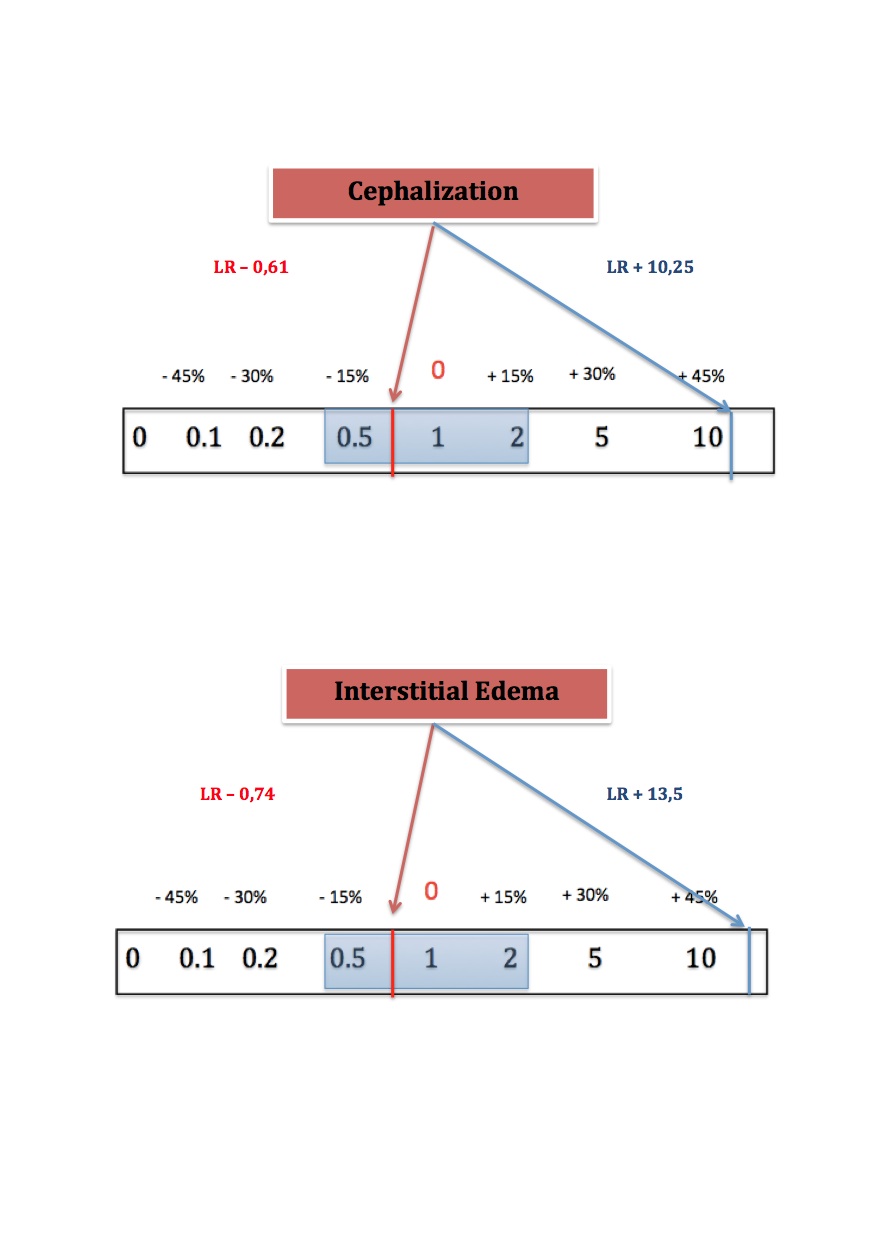I t’s a dark night when a red code arrive at the ED by ambulance.
Paramedics tell you: “called for acute dyspnoea, I think it’s a COPD exacerbation, he is wheezing, I gave him bronchodilators and steroids, but he is worsening”.
He has a history of COPD and hypertension.
He presents sweaty, dyspneic, arterial pressure is high (220/110).
Physical examination is normal except for wheezing.
AP Chest x ray shows no signs of congestion.
What about the LR of various chest x ray signs of congestion?



Conclusion
Approximately 1 of every 5 patients with decompensated heart failure had no signs of congestion on ED chest radiography. Twenty percent of cardiomegaly observed on echocardiography is missed on chest radiography, and pulmonary congestion can be minimal or absent in patients with significantly elevated pulmonary artery wedge pressures. Although cephalization, interstitial edema, and alveolar edema were highly specific (96%, 98%, and 99%,respectively) for decompensated heart failure, their low sensitivity (41%, 27%, and 6%, respectively) makes them poor screening tools. The presence of congestion on chest radiography in ED patients with acute decompensated heart failure found a sensitivity of 81%. The presence of cardiomegaly has been shown to have moderate sensitivity (79%) and specificity (80%). Pleural effusion, when present, has been shown to be highly suggestive of acute decompensated heart failure in ED patients (sensitivity 25%; specificity 92%).
Clinicians should not rule out heart failure in patients with no radiographic signs of congestion
…and so what?
Bibliography
Sean P. Collins, MD* Christopher J. Lindsell, PhD Alan B. Storrow, MD William T. Abraham, MD On behalf of the
Prevalence of Negative Chest Radiography Results in the Emergency Department Patient With Decompensated Heart Failure
ADHEREScientific Advisory Committee, Investigators and Study Group*
Annals of Emergency Medicine
Knudsen CW, Omland T, Clopton P, et al.
Diagnostic value of B-type natriuretic peptide and chest radiographic findings in patients with acute dyspnea.
Am J Med. 2004;116:363-368.


